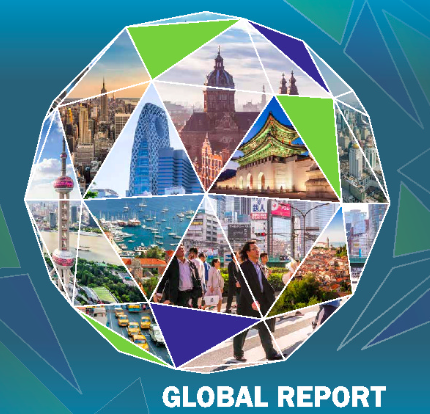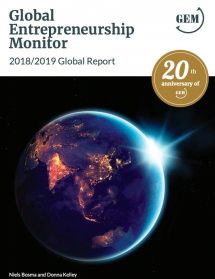There is an important increase in the number of Estonians who think that the conditions in Estonia favour setting up a business, while fear of failure has decreased. (by Global Entrepreneurship Monitor study)
There is an important increase in the number of Estonians who think that the conditions in Estonia favour setting up a business, while fear of failure has decreased. (by Global Entrepreneurship Monitor study)
Global Entrepreneurship Monitor (GEM) is a study that analyses entrepreneurship in different countries and regions; the latest study shows increased entrepreneurial activity around the world. “The crucial motivation in starting a business is personal example, such as personally knowing an entrepreneur. Other important factors include faith in one’s knowledge and skills to make it as an entrepreneur, and an identified business opportunity or idea. Less important factors include the improved social status as an entrepreneur, and the attention given to entrepreneurship in the society,” said Head of the Foresight Centre Tea Danilov, commenting the conclusions of the study
Over the last five years, the early-stage entrepreneurship activity (TEA) rate (the prevalence rate of individuals who have taken steps to start a new company, or have been entrepreneurs for up to 42 months) has increased from 14 % to 19 % in Estonia. Among the innovation-based countries – as the study classifies Estonia – this is a very high rate. Last year, the European TEA index was 8.1 %, and has remained around this mark for the past five years. The TEA index is 14.2 % in Latvia, 7.3 % in Sweden, and 5.3 % in Germany. Early-stage entrepreneurship has grown fairly equally among men and women, which is why the percentage of women has not changed over the past three years.
A typical early-stage entrepreneur in Estonia is a male under 45 years of age who identifies a business opportunity and considers his knowledge and skills good enough to become an entrepreneur. “We could ask whether men are actually more business savvy, or just more confident. It is a positive sign that most companies are founded in Estonia on the basis of business opportunities (76 %); only around one in four (24 %) entrepreneurs are forced to start a business to earn a living. This pattern favours innovation and ambition to grow,” Danilov summarised.
The study shows that entrepreneurship activity in Estonia would benefit further if the 45+ age group would be encouraged to become entrepreneurs, people would be prompted to share their personal entrepreneurship experiences, young people would be taught entrepreneurial skills, and entrepreneurship would be emphasised as a positive career choice.
All budding entrepreneurs fear failure, but the last five years have shown a change in the attitude of the Estonians in this respect. “The change in the entrepreneurship culture is characterised by indicators such as seeing entrepreneurship as a successful career choice, the high status of entrepreneurs in the society, and the high media attention to entrepreneurship,” Danilov explained.
The main drawback highlighted by the analysts is that the starting entrepreneurs are not planning to create as many jobs as earlier. Although the global report underlines this as a problem, Estonia has not seen the negative effects so far; however, in light of the trends in the labour market, the number of jobs may still fall because the number of self-employed individuals is growing.
The study shows that an increasing number of Estonians personally know an entrepreneur – this percentage has grown from 31% to 39% over the last five years. The number of people who feel that they do not have the knowledge and skills necessary for entrepreneurship is falling; however, self-doubters still make up 50 % of the population.
Over the last five years, people are increasingly viewing entrepreneurship as a positive career choice – in 2017, half of the 18–64 year olds felt that. The percentage of those who consider entrepreneurs as high status members of the society has remained around 60–65 %.
Global Entrepreneurship Monitor (GEM) is an annual study that analyses and compares entrepreneurship activity and attitudes. The study involves over 50 countries around the world; Estonia has been included since 2012.
See more on GEM 2018 / 2019 Global Report
References
Parliament of Estonia site
Photo by Global Entrepreneur Monitor on GEM GLOBAL REPORT
















Leave A Comment